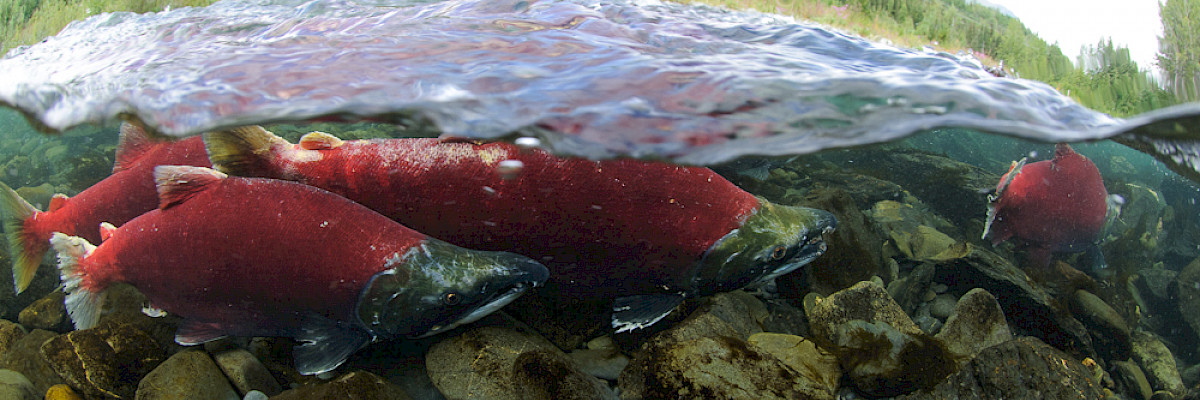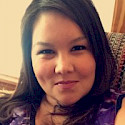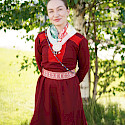
Salmon Peoples of the Arctic
Understanding and addressing the decline of salmon populations with a holistic approach emphasizing salmon's cultural, spiritual, and ecological significance.
The Salmon Peoples of the Arctic project is designing a holistic assessment that will focus on “Salmon peoples” as a measure of ecosystem health and outline future data needs that could contribute to the resilience and adaptation of these peoples and the salmon populations upon which they depend.
The primary project deliverables will be three workshop reports, the final of which will be a plan to complete a Salmon Peoples of the Arctic assessment, including a draft table of contents and list of figures.
The project will begin with a place-based comparison of the following river systems:
- the Yukon/Kuskokwim drainage systems (flowing through the US and Canada, the territories used by Athabaskan and Gwich’in tribes, and some Alaska Native tribes represented by the ICC);
- the Kamchatka River drainage (flowing through the Siberian region of the Russian Federation, the territories used by Russian Indigenous peoples); and
- the Deatnu/Teno River drainage (flowing through the Lapland region of Finland and Finnmark County of Norway, the territories used by Saami).
In most cases, salmon on these river systems are undergoing changes that challenge the food security of the peoples who rely upon them.
Importantly, this project aims to organize information about salmon and peoples in ways that are relevant to Indigenous Knowledge holders, leaders, and their communities.
This project engages Indigenous Knowledge at the design stage of an assessment to enable Indigenous Knowledge holders and natural and social scientists of academia and regulatory agencies to co-produce an assessment. The multi-stage workshop approach presents a method of developing and implementing a co-production of knowledge approach, by creating interdisciplinary dialogue between Arctic Indigenous Knowledge holders and scientists to generate the process and knowledge together.
Experts
-
Nadine Kochuten
Aleut International Association Head of Delegation to CAFF, Salmon Peoples of the Arctic Steering Committee -
Tonje Johansen
Saami Council Head of Delegation to CAFF, Salmon Peoples of the Arctic Steering Committee -
Vladimir Klimov
Russian Association of Indigenous Peoples of the North Head of Delegation to CAFF, Salmon Peoples of the Arctic Steering Committee -
Arina Tadyrova
Russian Association of Indigenous Peoples of the North Delegation, Salmon Peoples of the Arctic Steering Committee -
Camilia Zoe-Chocolate
Arctic Athabaskan Council Head of Delegation to CAFF, Salmon Peoples of the Arctic Steering Committee
Lead Working Groups
CAFFLead Arctic States & Permanent Participants
Aleut International AssociationArctic Athabaskan Council
Russian Association of Indigenous Peoples of the North
Saami Council
 Arctic Council Working Group
Arctic Council Working Group 


